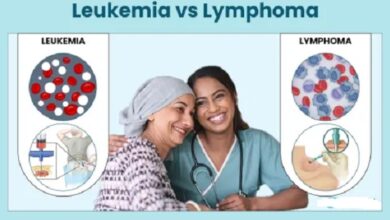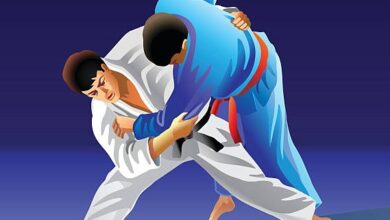Difference between education and teaching Similarities and FAQs
Education and teaching
In this article we will provide you the Difference between education and teaching Similarities and FAQs.
What does education mean
Education is the teaching and learning process used to transmit knowledge, skills, values, traditions and norms from one generation to another. The main human language. The objective of education is to develop the intellectual and physical abilities of the individual to the maximum in order to achieve their full development as a person. This includes helping you gain the knowledge you need to find employment and make useful contributions to society. In addition, education also helps prepare one to assume important social roles such as being a parent or responsible citizen. Education is much more than memorizing facts; It encompasses self-knowledge, respect for others and even critical questioning of what is established by others.
What does teaching mean?
Teaching is an educational process through which human beings acquire knowledge, skills and values . This form of learning can take the form of in-person classes taught by teachers or professors, as well as online courses or other distance instruction methods. Teaching not only involves the transmission of information but also that students obtain significant experiences for their personal, social and academic development . The main objective is to promote the cognitive, intellectual and creative skills necessary for continuous learning throughout life.
Similarities between education and teaching
The words education and teaching can be considered synonyms since they indicate the same activity. Both terms refer to the process of acquisition and transmission of knowledge, skills, values and principles by an agent (teacher or tutor) to a recipient (student). These actions are carried out for the intellectual, social and moral development of the individual. Therefore, we can say that both words refer to the training process aimed at acquiring knowledge and information necessary for personal growth.
Differences between education and teaching
Education refers to the way in which an individual acquires knowledge, skills and values in his or her life. It is related to the process of learning new things to gain information, develop skills, and grow personally. It is a continuous process and involves different types of experiences. On the other hand, teaching is the conscious act of transferring knowledge to others; It involves setting educational goals, planning lessons, and evaluating them to measure the success of the method used. Teaching is the means by which the knowledge acquired through education is transmitted between teachers and students.
Frequent questions about education and teaching
What is education?
Education is the process of acquiring knowledge, skills and values through formal or informal instruction. It is a means to help individuals develop intellectually, socially and morally so that they can achieve their individual and collective goals.
What is the importance of education?
Education is one of the most important tools to be successful in life. It provides key knowledge and skills that are necessary for personal, professional and social development. Education also helps improve a country’s economy by contributing to highly skilled people, providing job skills to young adults, promoting entrepreneurship, and creating job opportunities. Additionally, students learn values such as responsibility, respect for themselves and others, honesty and integrity that will allow them to lead successful lives.
What is a person’s education?
A person’s education is the process through which he or she acquires knowledge, skills and values to develop as an individual. It is made up of the education received through the formalized educational system (schools, universities) or informal (at home, in society). Education contributes to the intellectual, moral and social development of people.
What are the types of education?
Types of education include formal, non-formal and informal education. Formal education is that provided in an organized academic environment with a defined curriculum, such as primary and secondary schools, universities and other higher education programs. Non-formal education refers to instruction received outside the classroom; for example, distance courses or workshops for adults. Finally, informal education encompasses any activity aimed at acquiring any type of skill or knowledge without necessarily being related to the traditional academic context.
What does the word teaching mean?
Teaching is the process of transmitting knowledge, skills and values through study, instruction and education. It is a human activity focused on learning that usually takes place within an organized environment such as schools, universities, academies or educational centers. The main objective of teaching is to train people better prepared to contribute to social development through the appropriate use of the knowledge acquired.
What is teaching and education?
Teaching and education are processes that aim to develop skills, knowledge and values in an individual. Teaching is mainly related to learning new concepts, while education refers to how those skills and principles are carried out to create a better person. Both processes work together to help students become productive, knowledgeable adults.
What is teaching and its importance?
Teaching is the process of instructing and guiding others to help them learn. Teaching is based on the belief that all human beings have the potential to improve their skills, knowledge and values. By providing proper education and information, people can achieve their full potential. The importance of teaching is that it allows people to develop as individuals by gaining a greater understanding of the world around them. It is related to general academic training, as well as continued personal and professional development. It provides practical tools for addressing everyday problems, as well as conceptual theory on important topics related to society or how the world works globally. It also encourages creativity through artistic and literary activities that allow the exploration of new ideas and socially useful innovations. Finally, it establishes a moral system where ethical principles are transmitted through future generations; However, there are several different perspectives on what it means to be morally responsible.
What is the teaching process?
The teaching process refers to the set of activities and strategies that educators use to help students learn. These activities include curriculum design, development of educational content and materials, preparation and implementation of the educational program, continuous evaluation and feedback on student progress. The process also encompasses other factors such as motivation, teacher-student relationships, pedagogical skills, social interaction and respect for cultural diversity.




